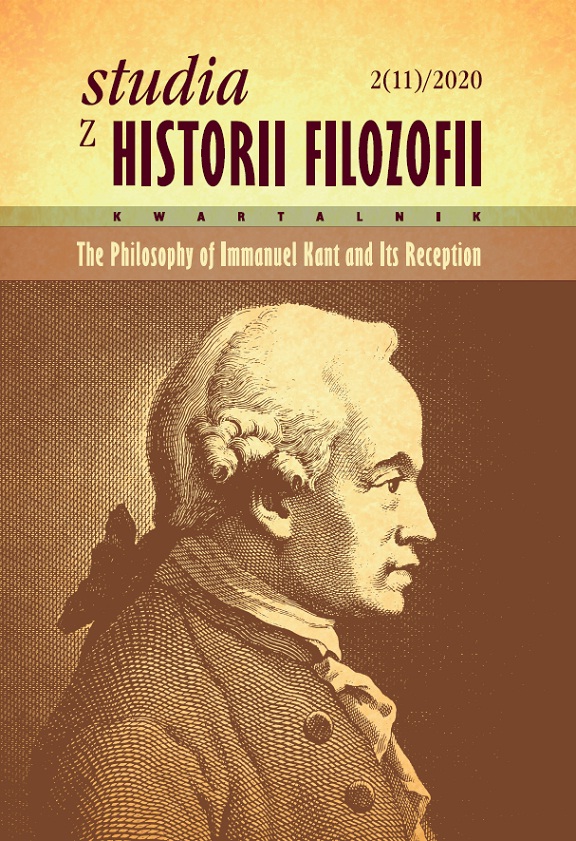Die politische Dimension der Anthropologie-Vorlesungen Kants
DOI:
https://doi.org/10.12775/szhf.2020.015Słowa kluczowe
Kant’s lectures on anthropology, political anthropology, revolution, French Revolution, war, evolution, progressive development, league of nationsAbstrakt
This article aims to establish a connection between Kant’s Lectures on Anthropology and his political writings. As the comparative analysis shows, the lectures contain a number of fragments that conceptually or even verbatim reproduce the ideas of Kant’s later published works on political topics. Given the fact that Kant did not give separate lectures on politics, Lectures on Anthropology represent the most important additional source of the Kantian political thought, allowing us to assume that they were a kind of sounding board which Kant used to think out loud and deliver the first versions of his socio-political ideas to his students, polishing them up before putting the finishing touches and publishing them for a larger audience. Lectures also help to trace the genesis of Kant’s individual political ideas, to discover changes in the perspective from which he viewed political events of his time and the historical process as a whole.Bibliografia
Kant Immanuel. 1900. Gesammelte Schriften. Akademie-Ausgabe. Berlin (AA)
Arendt Hannah. 1985. Das Urteilen. Texte zu Kants politischer Philosophie. München: Piper Verlag.
Burg Peter. 1974. Kant und die Französische Revolution. Berlin: Duncker & Humblot.
Cohen Alix. 2014. “Introduction”. In: Kant’s Lectures on Anthropology: A Critical Guide. Ed. A. Cohen. Cambridge: Cambridge University Press.
Frierson Patrick J. 2003. Freedom and Anthropology in Kant’s Moral Philosophy. Cambridge: Cambridge University Press.
Beck Lewis W. 1971. “Kant and the right of revolution”. In: Journal of the History of Ideas 32, 1: 411–422.
Louden Robert B. 2000. Kant’s Impure Ethics: From Rational Beings to Human Beings. New York: Oxford University Press.
Sturm Thomas. 2009. Kant und die Wissenschaften vom Menschen. Paderborn: Mentis.
Sturm Thomas. 2017. „Reines und empirisches Bewusstsein in Kants Anthropologie: Das ‚Ich‘ und die rationale Charakterentwicklung“. In: Immanuel Kant – Die Einheit des Bewusstseins. Ed. G. Motta, U. Thiel. 195–220, hier: 195–196. Berlin/Boston: De Gruyter.
Sturm Thomas. 2009. Kant und die Wissenschaften vom Menschen. Paderborn: Mentis.
Wilson Holly J. 2006. Kant’s Pragmatic Anthropology: Its Origin, Meaning and Critic Significance. Albany, NY: State University of New York Press.
Zammito John H. 2002. Kant, Herder and the Birth of Anthropology. Chicago: The University of Chicago Press.
Pobrania
Opublikowane
Jak cytować
Numer
Dział
Statystyki
Liczba wyświetleń i pobrań: 396
Liczba cytowań: 0



